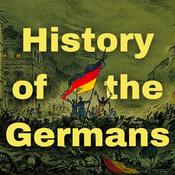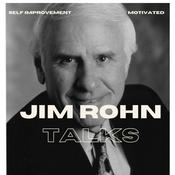244 episodes
- Prof Duncan Hardy is one of the leading experts in the history of the Holy Roman Empire and one of his main topics is the Imperial reform of 1495, making him the ideal guest for our show.
In his first book, Associative Political Culture in the Holy Roman Empire he tries to define what the Holy Roman Empire was a question we will almost certainly spend quite some time discussing today.
His forthcoming book, which he had so kindly sent me an advance copy, should be familiar to you all, since I do use it as a source for the show. It is titled Law, Society and Political Culture in Late Medieval and Reformation Germany and contains a large number of edited and translated primary sources illustrating German history circa 1350 to 1550.
As a special treat, listeners to the Hstory of the Germans can order the book at Manchester University press with a 30% discount. The discount code is mentioned at the end of teh interview, so listen out. You can order ithere:
Manchester University Press - Law, society and political culture in late medieval and Reformation Germany
Duncan has a PHD from Oxford University, fellowships from Cambridge, Erfurt and Bielefeld and currently teaches at the University of Central Florida.
And he is a fellow listener of the show. So this will be the time where all my mistakes and random speculations will be dragged into the glare of academic scrutiny.
The music for the show is Flute Sonata in E-flat major, H.545 by Carl Phillip Emmanuel Bach (or some claim it as BWV 1031 Johann Sebastian Bach) performed and arranged by Michel Rondeau under Common Creative Licence 3.0.
As always:
Homepage with maps, photos, transcripts and blog: www.historyofthegermans.com
If you wish to support the show go to: Support • History of the Germans Podcast
Facebook: @HOTGPod
Threads: @history_of_the_germans_podcast
Bluesky: @hotgpod.bsky.social
Instagram: history_of_the_germans
Twitter: @germanshistory
To make it easier for you to share the podcast, I have created separate playlists for some of the seasons that are set up as individual podcasts. they have the exact same episodes as in the History of the Germans, but they may be a helpful device for those who want to concentrate on only one season.
So far I have:
The Ottonians
Salian Emperors and Investiture Controversy
Fredrick Barbarossa and Early Hohenstaufen
Frederick II Stupor MundiLet me start today’s episode with some outrageous national stereotypes. If an Englishman is disappointed with the way the affairs of state are conducted, he writes a letter to his member of Parliament. A Frenchman in that same situation rents a tractor and dumps manure outside the Palais d’Elysee. A German threatens to file a lawsuit with the constitutional court, the Bundesverfassungsgericht.
Where did the Germans pick up the belief that courts and the law will protect them against government overreach? Sure, 19th and early 20th century judges had on occasion stood up to the Kaiser’s administration and the Grundgesetz, the liberal constitution of 1949, had become a cornerstone of our national identity following the comprehensive loss of moral standing.
But there is also a long strain that goes back to the Holy Roman Empire and the two imperial courts, the Reichskammergericht and the Reichshofrat. These courts have a bad reputation, not only because Johan Wolfgang von Goethe saw it fit to ridicule his former place of work. However, not everyone shared this negative perspective. Many social groups down to mere commoners relied on these independent judges to protect their life and property against rapacious princes.
The music for the show is Flute Sonata in E-flat major, H.545 by Carl Phillip Emmanuel Bach (or some claim it as BWV 1031 Johann Sebastian Bach) performed and arranged by Michel Rondeau under Common Creative Licence 3.0.
As always:
Homepage with maps, photos, transcripts and blog: www.historyofthegermans.com
If you wish to support the show go to: Support • History of the Germans Podcast
Facebook: @HOTGPod
Threads: @history_of_the_germans_podcast
Bluesky: @hotgpod.bsky.social
Instagram: history_of_the_germans
Twitter: @germanshistory
To make it easier for you to share the podcast, I have created separate playlists for some of the seasons that are set up as individual podcasts. they have the exact same episodes as in the History of the Germans, but they may be a helpful device for those who want to concentrate on only one season.
So far I have:
The Ottonians
Salian Emperors and Investiture Controversy
Fredrick Barbarossa and Early Hohenstaufen
Frederick II Stupor Mundi
Saxony and Eastward Expansion
The Hanseatic LeagueI am afraid today’s episode is not your usual swordplay and skullduggery. What we are looking at today is the Reichstag as it operated throughout the Holy Roman Empire from 1495 to 1803. Sounds a bit like dour constitutional law, but bear with me.
We will look at a couple of classic tropes, like, whether the empire consisted of more than 300 sovereign states who could do whatever they wanted, whether the Reichstag was a talking shop hat never did anything except stopping the emperor from becoming a proper monarch. And, as usual, we will talk about money and printing, and why German politician speeches are invariably long on fact and short on rhetoric.
The music for the show is Flute Sonata in E-flat major, H.545 by Carl Phillip Emmanuel Bach (or some claim it as BWV 1031 Johann Sebastian Bach) performed and arranged by Michel Rondeau under Common Creative Licence 3.0.
As always:
Homepage with maps, photos, transcripts and blog: www.historyofthegermans.com
If you wish to support the show go to: Support • History of the Germans Podcast
Facebook: @HOTGPod
Threads: @history_of_the_germans_podcast
Bluesky: @hotgpod.bsky.social
Instagram: history_of_the_germans
Twitter: @germanshistory
To make it easier for you to share the podcast, I have created separate playlists for some of the seasons that are set up as individual podcasts. they have the exact same episodes as in the History of the Germans, but they may be a helpful device for those who want to concentrate on only one season.
So far I have:
The Ottonians
Salian Emperors and Investiture Controversy
Fredrick Barbarossa and Early Hohenstaufen
Frederick II Stupor Mundi
Saxony and Eastward Expansion
The Hanseatic League
The Teutonic Knights
The Holy Roman Empire 1250-1356
The Reformation before the ReformationWe are now 7 episodes into the action-packed life of emperor Maximilian and he is only 35 years old. We still have another 24 years to go and they will be again full of wars, outlandish schemes, including one where he wants to make himself pope and of course marriages that create an empire. But if you look into German history schoolbooks, the thing that Maximilian is most famous for is what we will discuss today, the Imperial reforms that start in earnest in 1495 and will go through some iterations, before being largely completed in 1555.
Of the 1495 reforms, the Ewige Landfrieden is the most impactful. And it begins as follows quote:
“..from this moment on, no person of whatever rank, status, or condition shall make war on others, or rob, declare feud with, invade, or besiege them, or help anyone else to do so in person or through servitors; or violently occupy any castle, town, market, fortress, village, farmstead, or hamlet, or seize them illegally against another's will, or damage them with fire or in any other way, or assist by word or deed or in any other way support or supply any perpetrators of such deeds, or knowingly harbor, house, feed, or give drink, aid, and comfort to such persons.”
That sounds great. Who could possibly disagree with that? Why did it take months and months of negotiations to agree this?
Let’s find out.
The music for the show is Flute Sonata in E-flat major, H.545 by Carl Phillip Emmanuel Bach (or some claim it as BWV 1031 Johann Sebastian Bach) performed and arranged by Michel Rondeau under Common Creative Licence 3.0.
As always:
Homepage with maps, photos, transcripts and blog: www.historyofthegermans.com
If you wish to support the show go to: Support • History of the Germans Podcast
Facebook: @HOTGPod
Threads: @history_of_the_germans_podcast
Bluesky: @hotgpod.bsky.social
Instagram: history_of_the_germans
Twitter: @germanshistory
To make it easier for you to share the podcast, I have created separate playlists for some of the seasons that are set up as individual podcasts. they have the exact same episodes as in the History of the Germans, but they may be a helpful device for those who want to concentrate on only one season.
So far I have:
The Ottonians
Salian Emperors and Investiture Controversy
Fredrick Barbarossa and Early Hohenstaufen
Frederick II Stupor Mundi
Saxony and Eastward ExpansionThe world is a-changing. Maximilian I may still dream of the medieval universal empire where he will lead Christendom in an epic crusade to expel the Turks from the European mainland, even reconquering Jerusalem. Meanwhile his main adversary, king Charles VIII of France unleashed the fury of war in Italy, kicking off a struggle that would last for 50 years and replaced the medieval world of popes and emperors with a system based on the balance of powers.
In the near term, this expedition to conquer the kingdom of Naples triggered not only the outbreak of Syphilis, but also the double marriage between Habsburg and Spain that Maximilian did not want, but ended up being the second of the three marriages that created an empire.
Lots to get through, none of it boring..
The music for the show is Flute Sonata in E-flat major, H.545 by Carl Phillip Emmanuel Bach (or some claim it as BWV 1031 Johann Sebastian Bach) performed and arranged by Michel Rondeau under Common Creative Licence 3.0.
As always:
Homepage with maps, photos, transcripts and blog: www.historyofthegermans.com
If you wish to support the show go to: Support • History of the Germans Podcast
Facebook: @HOTGPod
Threads: @history_of_the_germans_podcast
Bluesky: @hotgpod.bsky.social
Instagram: history_of_the_germans
Twitter: @germanshistory
To make it easier for you to share the podcast, I have created separate playlists for some of the seasons that are set up as individual podcasts. they have the exact same episodes as in the History of the Germans, but they may be a helpful device for those who want to concentrate on only one season.
So far I have:
The Ottonians
Salian Emperors and Investiture Controversy
Fredrick Barbarossa and Early Hohenstaufen
Frederick II Stupor Mundi
Saxony and Eastward Expansion
The Hanseatic League
The Teutonic Knights
The Holy Roman Empire 1250-1356
The Reformation before the ReformationMore Education podcasts
Trending Education podcasts
About History of the Germans
A narrative history of the German people from the Middle Ages to Reunification in 1991. Episodes are 25-35 min long and drop on Thursday mornings. "A great many things keep happening, some good, some bad". Gregory of Tours (539-594) HotGPod is now entering its 9th season. So far we have covered: Ottonian Emperors (# 1- 21) - Henry the Fowler (#1) - Otto I (#2-8) - Otto II (#9-11) - Otto II (#11-14) - Henry II (#15-17) - Germany in 1000 (#18-21) Salian Emperors(#22-42) - Konrad II (#22- 25) - Henry III (#26-29) - Henry IV/Canossa (#30-39) - Henry V (#40-42) - Concordat of Worms (#42) Early Hohenstaufen (#43-69) - Lothar III (#43-46) - Konrad III (#47-49) - Frederick Barbarossa (#50-69) Late Hohenstaufen (#70-94) - Henry VI (#70-72) - Philipp of Swabia (#73-74) - Otto IV (#74-75) - Frederick II (#75-90) - Epilogue (#91-94) Eastern Expansion (#95-108) The Hanseatic League (#109-127) The Teutonic Knights (#128-137) The Interregnum and the early Habsburgs (#138 ff - Rudolf von Habsburg (#139-141) - Adolf von Nassau (#142) - Albrecht von Habsburg (#143) - Heinrich VII (#144-148) - Ludwig the Bavarian (#149-153) - Karl IV (#154-163) The Reformation before the Reformation - Wenceslaus the Lazy (#165) - The Western Schism (#166/167) - The Ottomans (#168) - Sigismund (#169-#184 The Empire in the 15th Century - Mainz & Hessen #186 - Printing #187-#188 - Universities #190 - Wittelsbachs #189, #196-#199 - Baden, Wuerrtemberg, Augsburg, Fugger (#191-195) - Maps & Arms (#201-#202) The Fall and Rise of the House of Habsburg - Early habsburgs (#203-#207) - Albrecht II (#208) -Freidrich III (#209-Podcast websiteListen to History of the Germans, anything goes with emma chamberlain and many other podcasts from around the world with the radio.net app

Get the free radio.net app
- Stations and podcasts to bookmark
- Stream via Wi-Fi or Bluetooth
- Supports Carplay & Android Auto
- Many other app features
Get the free radio.net app
- Stations and podcasts to bookmark
- Stream via Wi-Fi or Bluetooth
- Supports Carplay & Android Auto
- Many other app features


History of the Germans
Scan code,
download the app,
start listening.History of the Germans: Podcasts in Family




































